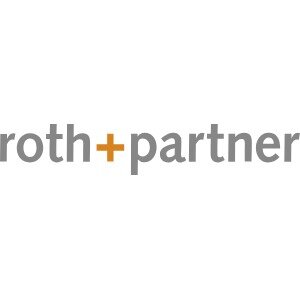Best Employer Lawyers in Triesen
Share your needs with us, get contacted by law firms.
Free. Takes 2 min.
List of the best lawyers in Triesen, Liechtenstein
About Employer Law in Triesen, Liechtenstein
Employer law in Triesen, Liechtenstein, is a vital component of the labor and commercial landscape. The small yet economically significant principality of Liechtenstein, known for its robust financial services sector, has developed a comprehensive legal framework to govern employment relations. Triesen, being one of the key municipalities, adheres to these laws, ensuring that employment practices are fair and equitable. Employer law covers various aspects such as contracts, working conditions, employee rights, and dispute resolution, ensuring both employers and employees can work in a well-regulated environment.
Why You May Need a Lawyer
There are several scenarios where one might need legal assistance in the realm of employer law in Triesen. This includes drafting or reviewing employment contracts to ensure compliance with local laws, handling disputes related to employment termination, navigating issues of workplace discrimination or harassment, and understanding employers' obligations under Liechtenstein's labor laws. Additionally, legal assistance might be required for compliance with occupational health and safety regulations, wage and hour laws, and to address any claims filed by employees.
Local Laws Overview
In Triesen, the Employment Contracts Act governs the core tenets of employer-employee relationships. This includes stipulations regarding contract terms, wage agreements, working hours, and termination procedures. Liechtenstein also adheres to certain international labor standards, providing a framework of rights for employees, including protection against unfair dismissal and discrimination. Employers must also comply with regulations regarding workplace safety and health, ensuring that their businesses operate within the legal frameworks established for worker protection.
Frequently Asked Questions
1. What are the basic rights of an employee under Liechtenstein law?
Employees in Liechtenstein are entitled to fair wages, a safe working environment, protection against unfair dismissal, and non-discriminatory practices in the workplace.
2. How is an employment contract structured in Triesen?
An employment contract typically includes terms regarding job responsibilities, salary, working hours, duration of employment, and conditions for termination, in compliance with Liechtenstein's Employment Contracts Act.
3. Can an employer terminate an employment contract at any time?
Termination must follow specific legal guidelines, including notice periods and valid reasons. Unjustified dismissals can be contested legally.
4. What should I do if I experience workplace discrimination?
If you experience discrimination, you should first document the incidents and seek legal advice. Liechtenstein law provides mechanisms for redress in such situations.
5. Are there specific laws regarding workplace safety?
Yes, employers are obligated to adhere to workplace safety laws, ensuring that the working environment is safe and risks are minimized.
6. How are disputes between employers and employees resolved?
Disputes can be resolved through direct negotiation, mediation, or through the legal system where necessary, with the possibility of court intervention if required.
7. What is the standard working week in Liechtenstein?
The standard working week generally comprises 40 to 45 hours, but this can be subject to specific contractual agreements made between employer and employee.
8. Are non-compete clauses enforceable in Liechtenstein?
Yes, but they must be reasonable in scope, duration, and geographic area to be enforceable.
9. What are the employer's responsibilities regarding employee benefits?
Employers must comply with statutory requirements for benefits such as paid leave, insurance, and pension contributions.
10. Can employers monitor employee communications?
Monitoring is subject to strict legal frameworks ensuring privacy rights are upheld; unwarranted monitoring may be deemed unlawful.
Additional Resources
For more information, individuals can contact the Chamber of Commerce and Industry of Liechtenstein, the Labor Inspectorate, or the Public Employment Service. These organizations offer guidance and support to both employers and employees navigating the complexities of employer law in Liechtenstein.
Next Steps
If you need legal assistance related to employer matters in Triesen, consider consulting with a local attorney specializing in labor law to help you understand your rights and obligations. It is also beneficial to stay informed about any legislative changes by regularly reviewing updates from governmental bodies and legal advisory services.
Lawzana helps you find the best lawyers and law firms in Triesen through a curated and pre-screened list of qualified legal professionals. Our platform offers rankings and detailed profiles of attorneys and law firms, allowing you to compare based on practice areas, including Employer, experience, and client feedback.
Each profile includes a description of the firm's areas of practice, client reviews, team members and partners, year of establishment, spoken languages, office locations, contact information, social media presence, and any published articles or resources. Most firms on our platform speak English and are experienced in both local and international legal matters.
Get a quote from top-rated law firms in Triesen, Liechtenstein — quickly, securely, and without unnecessary hassle.
Disclaimer:
The information provided on this page is for general informational purposes only and does not constitute legal advice. While we strive to ensure the accuracy and relevance of the content, legal information may change over time, and interpretations of the law can vary. You should always consult with a qualified legal professional for advice specific to your situation.
We disclaim all liability for actions taken or not taken based on the content of this page. If you believe any information is incorrect or outdated, please contact us, and we will review and update it where appropriate.








